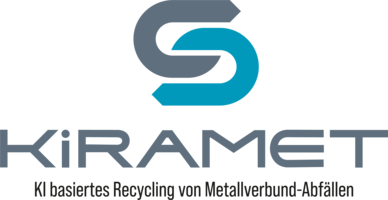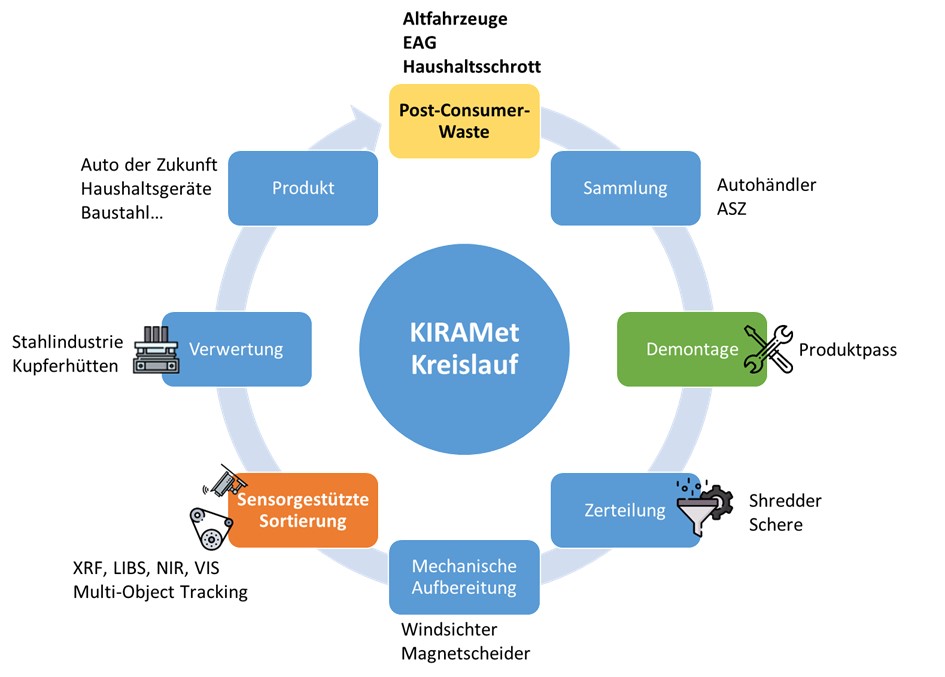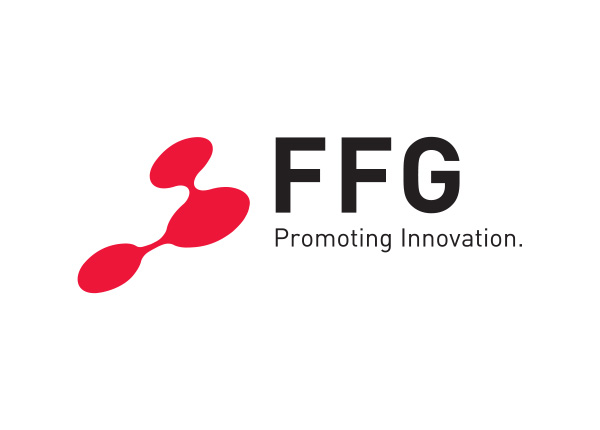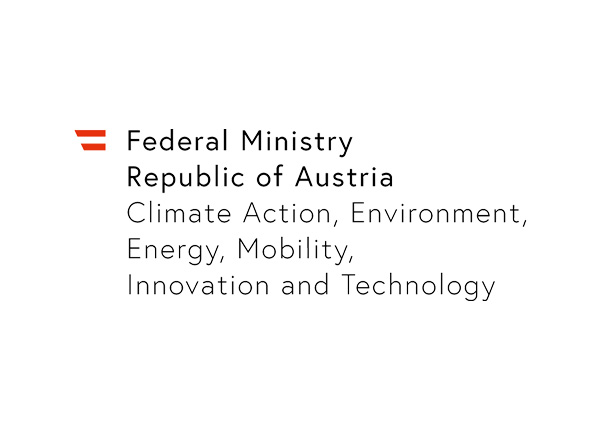Overall approach
To achieve the goals set by the European and Austrian strategy for a sustainable and climate-neutral circular economy, reductions in resource consumption and increases in efficiency of resource usage are necessary. The ecological footprint is particularly high in the field of metals. Three times as many raw materials are used in the refining process as usable metal is eventually produced. Furthermore, Austria is heavily dependent on the import of metallic resources, as the import share is 85%.
With the demand for metal products remaining high, the prices for metallic raw materials are continuing to rise, while security of supply is falling. Therefore, an efficient circular economy with a high recycling rate in the metals area is essential for the business location.
Especially in the case of post-consumer waste, a stream of materials with a high metal content and great potential for recycling can be found. However, these raw materials are bound in the form of alloys or in composite mixtures with other types of metals or with organic and inorganic materials. This leads to poor usability of the currently produced scrap for the production of high-quality metals.
Compared to the state of the art, KIRAMET takes an ambitious, big step towards the production of higher quality scrap fractions through the use of AI-based methods in the development of an intelligent recycling platform. The aim of this platform is to improve the recycling process to such an extent that large quantities of capital scrap can be made available in high-quality, defined and nationally recyclable metal fractions, thus making a significant contribution to climate neutrality and the supply of raw materials.
Objectives
Improving the treatment process of post-consumer waste through the application of best-of-breed technologies to increase the proportion of high-quality scrap fractions in the recycling process. A key role in achieving this goal has the networking of intelligent sorting stations ("smart sort") with information about the recyclability of consumer products in the form of a digital product passport ("smart waste"), which is made available during the recycling process via a software environment in which a digital twin of the process can be generated ("smart twin"). The objectives of KIRAMET are:
- Increasing in the quantities of nationally recyclable scrap
- Increasing the sorting depth and purity of scrap fractions while also increasing throughput
- Saving of resources such as primary raw materials and energy
- Reducing CO2 emissions through the use of recycled scrap as opposed to the use of primary raw materials such as iron ore and coal
- Increasing the availability of information by utilizing digital product passports and increasing the degree of efficiency of data usage
Project timeline:
1 July 2023 – 30 June 2026
Funding scheme:
This project is funded by the Austrian Research Promotion Agency (Application no. 47038888).
Project consortium:
Beginning with the project coordination, the consortium is formed as follows:
- Montanuniversitaet Leoben
- 7lytix gmbh
- Andritz AG
- Bernegger GmbH
- Breitenfeld Edelstahl Aktiengesellschaft
- BT-Wolfgang Binder GmbH
- ETA Umweltmanagement GmbH
- EXARON GmbH
- Fabasoft R&D GmbH
- K1-MET GmbH
- Mayer Recycling GmbH
- METTOP GmbH
- Montanuniversitaet Leoben – Lehrstuhl für Abfallverwertungstechnik und Abfallwirtschaft
- Montanuniversitaet Leoben – Lehrstuhl für Cyber Physical Systems
- OOE Landes-Abfallverwertungsunternehmen GmbH
- PROFACTOR GmbH
- Salzburg Research Forschungsgesellschaft m.b.H.
- Scholz Austria GmbH
- Software Competence Center Hagenberg GmbH
- voestalpine High Performance Metals GmbH
- voestalpine Stahl GmbH

 DE
DE EN
EN


